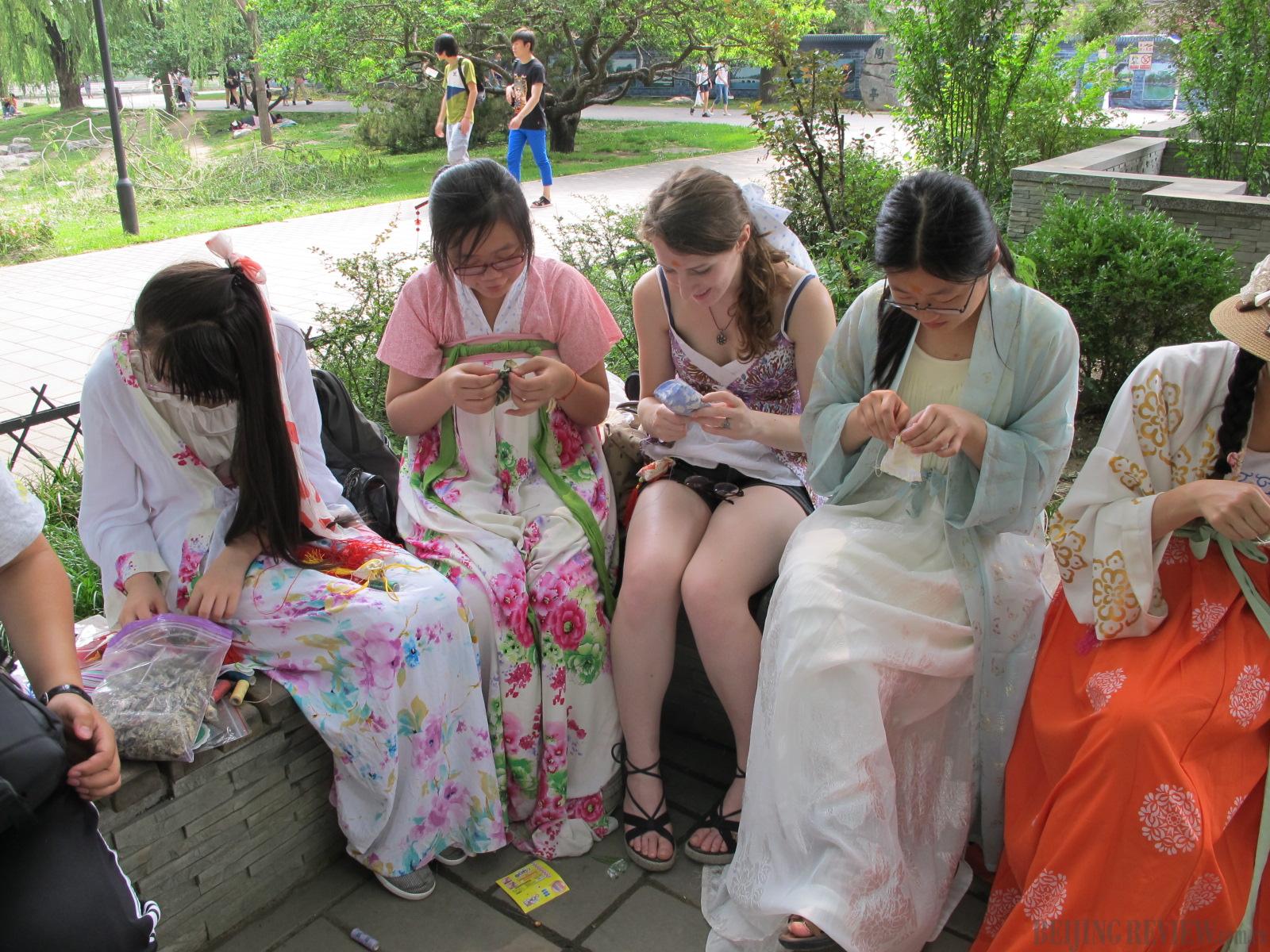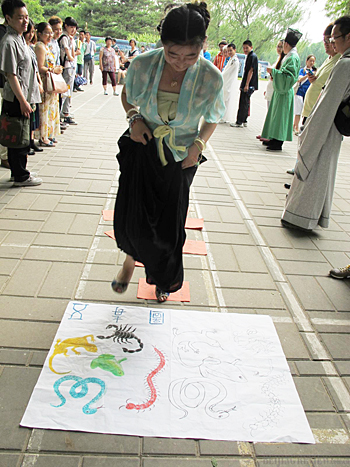|
 |
|
SACHETS AND COLORED ROPES: Girls are making fragrant sachets by stuffing cloth bags with herbs like mugwort, whose fragrance will protect the bearer from insects in summer (PAN XIAOQIAO) |
The Dragon Boat Festival, also known as Duanwu Festival, fell on June 2 this year. It is celebrated each year on the fifth day of the fifth month of the Chinese lunar calendar. As one of the most important traditional festivals for the Chinese people, Duanwu has been listed as a national holiday since 2008.
 |
|
THE FIVE POISONOUS CREATURES: A girl is stamping the five poisonous animals. It is believed that, by doing so, one will be able to keep away from the harm of such dangerous animals in the coming hot months (PAN XIAOQIAO) |
On June 1, one day before the festival, traditional culture lovers from Beijing gathered in the city's Taoranting Park, celebrating the day together by observing folk customs like stuffing sachets with herbs, weaving five-colored ropes and stamping the "five poisonous insects" depicted on the paper (scorpions, centipedes, toads, snakes and spiders).
According to Smiling Mask and Kui'er, the organizers of the day's activities, whenever festivals such as Duanwu approach, a schedule will be first worked out through online messageboards, and when the day comes, traditional culture lovers from around the city will get together at a selected spot. Many in attendance will wear hanfu, the traditional clothing of the Han people – the largest ethnic group in China, to commemorate and celebrate such festivals as their ancestors did. Most of the participants are young people, born after the 1980s, and many parents bring their children in the hope of keeping the customs and traditions of these festivals alive through the generations.
Diana, a student from France, studies at the Beijing Language and Culture University. She came to the gathering because one of her Chinese friends is an admirer of hanfu. Diana said that she was very interested in the way Duanwu Festival was celebrated at the park. Before coming to China, she knew nothing about this festival, and she felt lucky to be able to experience such an essential part of the Chinese culture in this way.
Of the many theories about the origin of the Duanwu Festival, is that the day is to remind people of driving away diseases, poisonous insects and evil spirits with the approach of the hot summer. Although other theories exist, this is the most commonly accepted today.
According to the The Book of Rites, one of the five classics of Confucianism, during the fifth lunar month yang, which represents life, begins to decline, while yin, which represents death, begins to reemerge and grow. As a result, the balance between yin and yang is broken and all kinds of diseases can take hold.
To stay healthy, the Chinese people have carried on with several ancient rituals to protect their family from illness, many of which have been preserved as through Duanwu Festival as it is today.
About hanfu
The Han people wore hanfu costume for more than 4,000 years until the 17th century, when Manchu rulers of the Qing Dynasty (1644-1911) prohibited it.
The patterns embroidered on hanfu changed over time in different dynasties, but the collar, wide sleeves and buttonless features have remained consistent. Many traditional costumes in other Asian countries, such as the kimono in Japan and Korean hanbok, were heavily influenced by hanfu.
During certain periods of history, hanfu was considered a required part of Chinese ceremonies and rituals. In this sense, hanfu is a symbol of thousands of years' of the traditional culture of the Han people and also an important part of this ethnic group's identity and lifestyle. |
